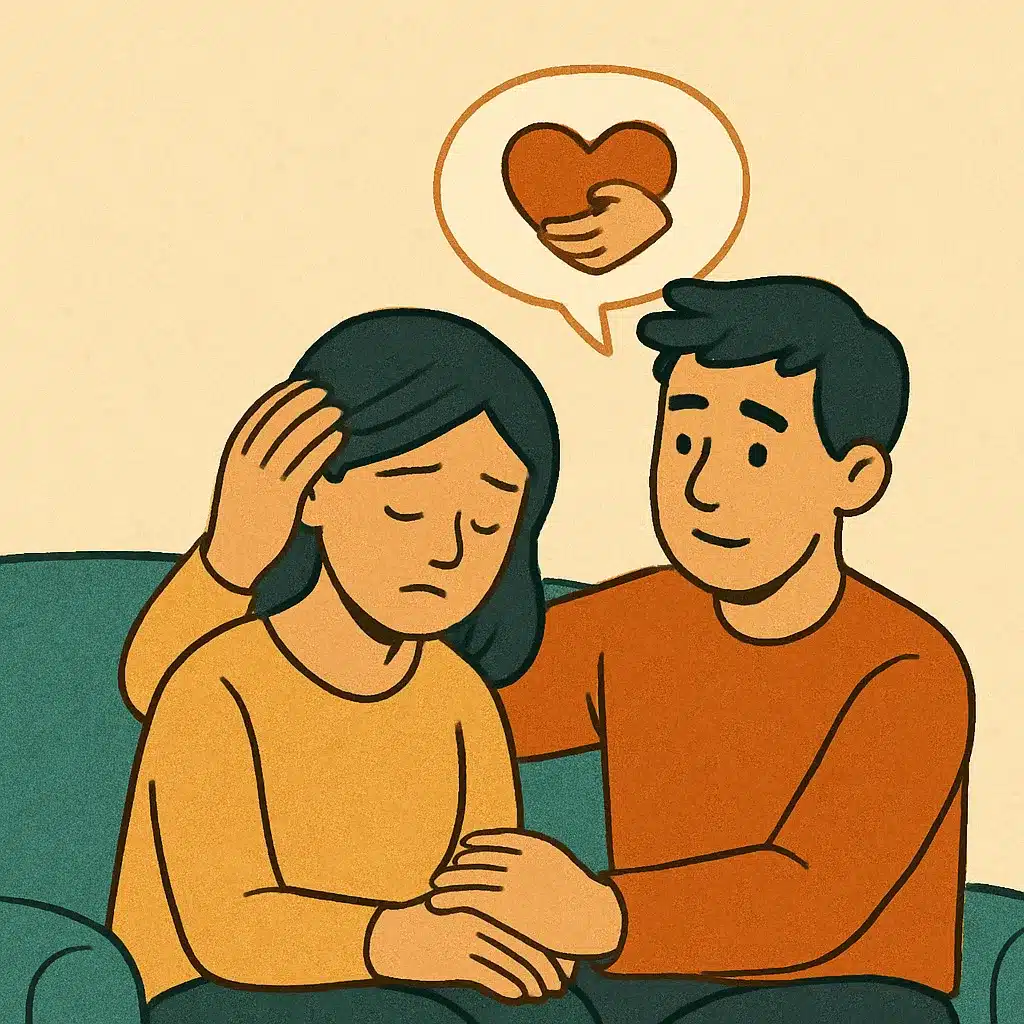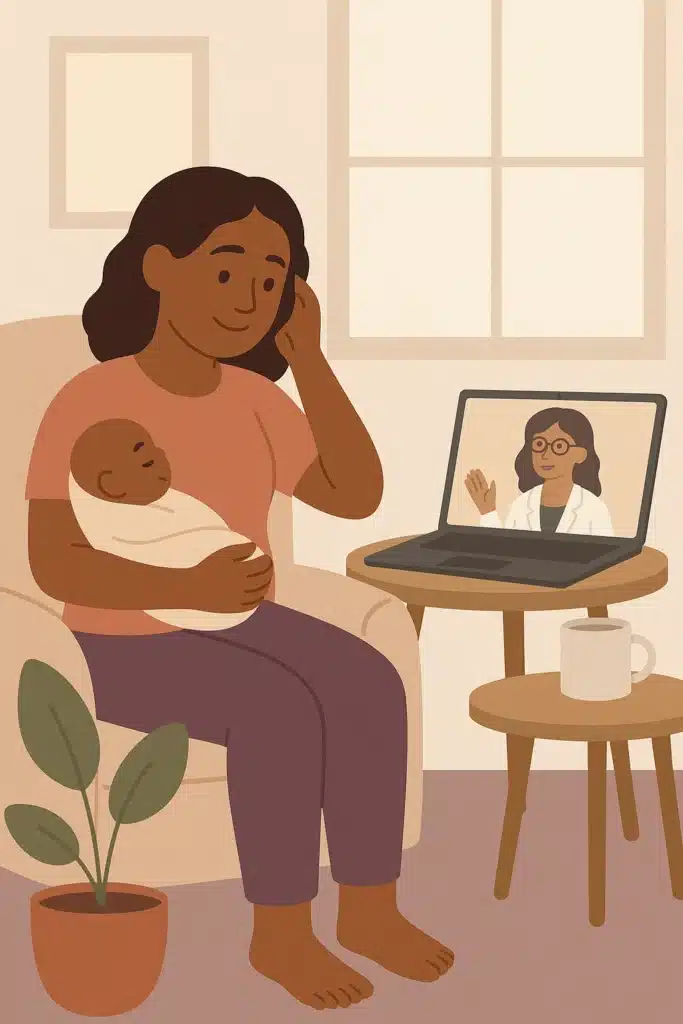Postpartum Therapist in NYC – Support for New Mothers
The postpartum period is filled with emotions—joy, exhaustion, and sometimes, unexpected sadness. Many new women experience baby blues, while others face postpartum depression (PPD) or postpartum anxiety. These feelings can be overwhelming, but help is available.
At My Psychotherapy, Anat Joseph, LCSW, provides expert maternal mental health support. With over 20 years of experience, she helps mothers manage depressive symptoms, anxiety, and the effects of a traumatic birth experience. Therapy provides guidance, relief, and long-term emotional stability.
Understanding Postpartum Mental Health

Common Emotional and Physical Challenges
New mothers go through hormonal shifts, exhaustion, and emotional ups and downs. Some feel baby blues, which last a few weeks. Others develop postpartum depression and anxiety, which can persist and worsen without support.
Symptoms may include:
✔ Mood swings, sadness, or guilt
✔ Difficulty sleeping or eating
✔ Intrusive thoughts or excessive worry
✔ Feeling disconnected from the baby
If these symptoms last more than two weeks, seeking help from a postpartum therapist NYC is a crucial step.
The Four Stages of Postpartum Depression
PPD doesn’t appear overnight. It develops in four stages:
- Early Onset: Sadness, fatigue, or mood swings begin within weeks.
- Mild Depression: Feelings of hopelessness and exhaustion grow stronger.
- Severe Depression: Intense depressive symptoms, including intrusive thoughts and difficulty functioning.
- Chronic Depression: Untreated long-term distress that impacts overall well-being.
Understanding these stages can help mothers seek treated postpartum depression early.
Perinatal Depression vs. Postpartum Depression
While postpartum depression (PPD) develops after birth, perinatal depression can begin during pregnancy. Both conditions are serious mental health conditions that require timely support.
Seeking early intervention can prevent symptoms from worsening and improve recovery outcomes.
When to Seek Help from a Therapist
It’s time to see a PPD therapist if:
✔ Sadness, anxiety, or fear affect daily life
✔ There are intrusive thoughts about self-harm
✔ Bonding with the baby feels difficult
✔ Support from family members isn’t enough
Therapy provides relief and helps mothers regain emotional balance.
Effective Therapy for Postpartum Depression and Anxiety

What Kind of Therapist Do You Need?
A mental health professional specializing in perinatal mental health can help. Look for:
✔ A postpartum anxiety therapist to manage excessive worry
✔ A PPD therapist for talk therapy and emotional support
✔ A birth trauma therapy expert if childbirth was distressing
Therapists use different approaches to help mothers cope.
Best Therapy Options for PPD
Mothers have multiple options for psychotherapy for postpartum depression:
✔ Cognitive Behavioral Therapy (CBT): Changes negative thought patterns.
✔ Talk Therapy: Provides emotional support and stress management.
✔ Group Therapy: Creates a sense of community and shared experiences.
Therapists may combine these approaches for the best results.
Birth Trauma Therapy for Emotional Recovery
A traumatic birth experience can lead to PPD, anxiety, or PTSD. Therapy helps process painful memories and restore a sense of control.
Common approaches include:
✔ Psychoanalysis to explore deep emotional conflicts
✔ Mindfulness exercises to reduce stress
✔ Support groups for shared healing
Recovery from birth trauma is possible with the right support.
Strengthening Relationships and Family Support

Couples Therapy After Childbirth
The postpartum period affects relationships. Lack of sleep, stress, and shifting roles can cause tension.
A postpartum therapist in NYC helps couples:
✔ Improve communication
✔ Balance responsibilities
✔ Strengthen emotional connection
Early support prevents long-term strain.

Supporting a Partner with Postpartum Depression
Partners and family members can help by:
✔ Recognizing depressive symptoms
✔ Offering practical help like cooking or baby care
✔ Encouraging therapy without judgment
A supportive home environment speeds up recovery.

The Role of Family and Social Support in Recovery
Strong social support is crucial in managing postpartum depression NYC symptoms. Connecting with loved ones, joining a support group, or seeking professional therapy can make a significant difference.
Open conversations reduce stigma and help mothers feel understood. Postpartum Support International provides education and resources for families.
Finding a Postpartum Therapist in NYC
What to Look for in a PPD Therapist
Finding the right therapist makes a difference. Consider:
✔ Experience in maternal mental health
✔ A focus on CBT and talk therapy
✔ Flexible scheduling, including virtual therapy
A good PPD therapist provides both emotional and practical support.
In-Person vs. Online Therapy Options
Many mental health professionals offer both options:
✔ In-person therapy for face-to-face support
✔ Online therapy for flexibility and convenience
Choose what works best for your lifestyle.
Insurance and Payment Options
Many insurance plans cover psychotherapy for postpartum depression. Sliding-scale fees may also be available.
Check with your provider to explore coverage options.

Getting Started with Therapy
Scheduling Your First Appointment
The first step to recovery is reaching out. A PPD therapist will:
✔ Assess symptoms and challenges
✔ Set therapy goals
✔ Explore treatment options like CBT or group therapy
What to Expect in a Therapy Session
Therapy focuses on short-term relief and long-term emotional health. Sessions may include:
✔ Understanding triggers and emotions
✔ Developing coping strategies for stress
✔ Strengthening family relationships
Each session is tailored to the client’s needs.
Additional Resources for Postpartum Support
Besides therapy, consider:
✔ Support groups from Postpartum Support International
✔ Community programs for postpartum care
✔ Educational materials on maternal health
Seeking support early leads to a smoother recovery.
Start Your Healing Journey
At My Psychotherapy, Anat Joseph LCSW, PsyA, offers compassionate therapy tailored to each client’s journey. Whether dealing with postpartum depression, anxiety, or a traumatic birth experience, support is available
Because Your Happiness Matters.
